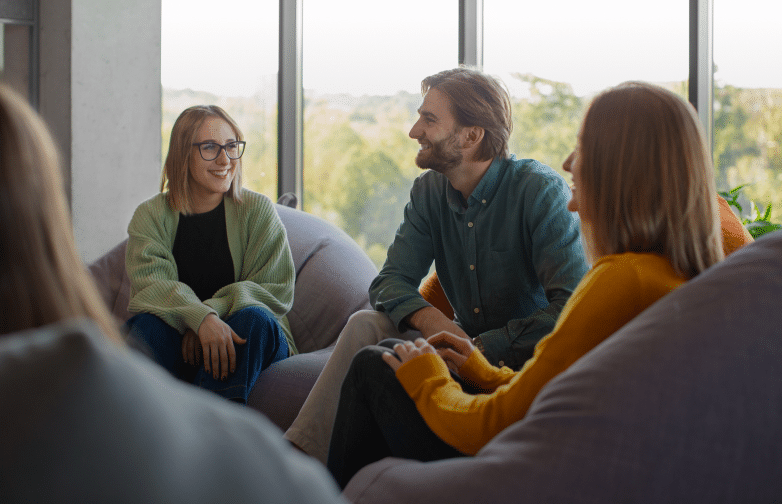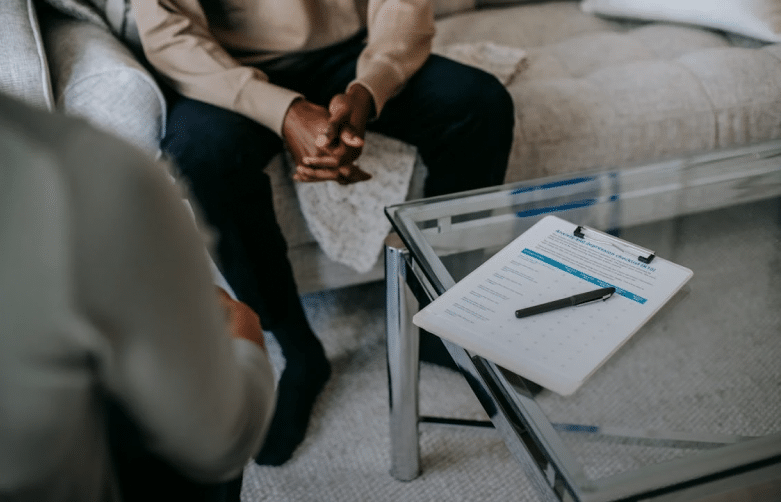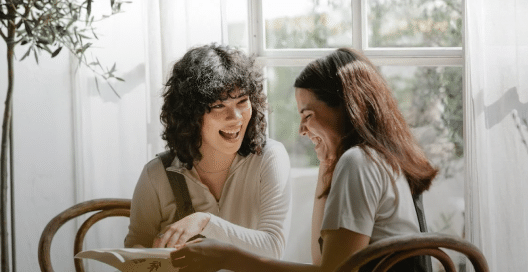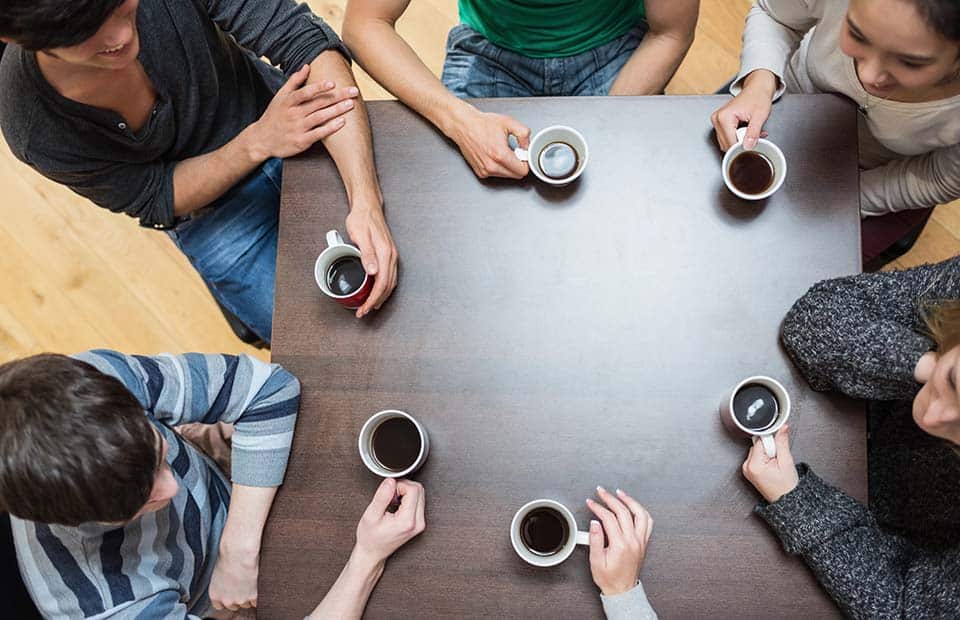When people work together to heal together, something extremely powerful takes place. Healing occurs on multiple levels simultaneously, and largely effortlessly. The healing benefits of group therapy are transformative for all members of the group.

Group therapy fosters personal development, helps overcome obstacles, and builds meaningful connections. It is a remarkable healing modality, useful for individuals suffering from a wide range of substance abuse issues and other mental health conditions, relationship struggles, and more.
Group therapy creates a unique environment where individuals come together to share personal experiences and gain insights through hearing others’ experiences and getting feedback on their own.
Group members also develop coping skills as they are occasionally faced with discomfort over what has been aired – just like real life – and learn to manage that discomfort appropriately.

Interactions occur under the watchful eye and intentional direction of a group leader, a qualified mental health professional.
We invite individuals seeking solace, healing, and transformation from their substance addictions and other mental health challenges. Within the warm embrace of our group sessions, patients journey through the initial stages of recovery and healing. It is a journey of self-exploration, resilience-building, and profound personal growth – and it is shared. The embrace of the collective nurtures and nourishes, empowers and emboldens, critiques and redirects, celebrates and supports. Together, we navigate to achieve and hold on to wellness. Together, we succeed.

There are many benefits of group therapy. Many of these benefits occur by virtue of simply attending the group. Skillful guidance by group therapists helps individuals build a sense of belonging, in turn alleviating social anxiety and improving social skills and consequently, elevating self-esteem. As with all forms of mental healthcare, the more an individual participates appropriately, the more is gained from the sessions. Even with minimal personal participation, an individual will still benefit from group therapy sessions and healing in the group setting. The patient who embraces the opportunity, as both contributor and observer, will gain exponentially from it.
Some of the ways that participants gain include:

Perhaps the most powerful gift of group therapy for addiction participation is the recognition that one is not alone on the recovery journey. Individuals take great solace – and empowerment – from the stories of others both similar to and different from their own. This realization that one is not alone in this struggle is incredibly powerful. It fosters a sense of universality and reduces feelings of isolation and anxiety about facing the unknown future alone. This element of validation and support is absolutely not possible in purely self-help environments, absent the strength and power of the group. When recovery patients realize they are not alone in their struggles and help is right there, the recovery journey becomes much more do-able for all.

Another powerful asset of group therapy participation is the variety of viewpoints brought to the table. Each patient has a story for what brought them to this point. These are stories of human tragedy and trauma, and we feel a sense of ease when we know others share our difficulties. At the same time, however, the stories of human tragedy are accompanied by individual perspectives that may or may not have helped the individual cope well with that tragedy. We cannot change the past, but we can definitely alter how we look at it and find ways to reach acceptance and heal those wounds. Even if individuals share similar experiences, their perspectives and take-aways from those experiences can vary widely. Hearing others’ perspectives on their experiences helps open new doors for acceptance and healing to apply to one’s own experiences. Hearing how others cope with their challenges empowers everyone in the room to decide differently in their own reflections.

Much like a classroom, the group therapy session is an opportunity to learn new skills and practice new ways of being in the world. It is a learning environment. Group activities and discussions help group members hone essential coping skills, communication techniques, and emotional regulation strategies.

One of the greatest powers of any group is its ability to hold group members accountable. This is the main reason people prefer to pay to exercise in a group, for example, rather than exercise solo at home – the group pushes them to a better workout than they tend to get when motivated only by themselves. In therapy groups, group members hold each other accountable to the group’s goals and provide mutual encouragement for reaching them. This bolsters motivation and one’s commitment to personal growth. In this way, group therapy helps individuals advance further and more holistically than individual therapy alone.

By the very nature of a support group, people support each other on their healing journeys. This level of support often transcends the group therapy sessions as bonds are forged and individuals genuinely come to care about each other. These connections can offer enduring sources of support and understanding.
Therapy groups have a focus. Each type of group is tailored to specific purposes. Some common kinds of groups include those for substance abuse and substance use disorder, anger management, anxiety disorders, psychoeducational groups, skills development groups, process groups, and more.
Depending on a variety of factors, the group therapy facilitator will employ different types of group therapy. These might include cognitive behavioral therapy (CBT), group psychotherapy, and other evidence-based therapies recognized by the American Psychological Association (APA) as appropriate intervention.
Group treatment generally occurs in in-person settings, in either inpatient or outpatient facilities, but occasionally groups meet for online therapy as well. Online therapy is more feasible for a small group than a large one.

Like all groups, therapy groups progress in stages. Each stage plays a crucial role in the therapeutic process. Through the initial group formation and establishment of trust, exploration of emotions, and implementation of improved coping skills, each stage contributes to individual and collective growth. Group cohesiveness is facilitated by the level of intimacy of our group members’ shares and helps create a supportive, compassionate, helpful environment for all group members. Cohesiveness also helps forge interpersonal bonds that transcend the group therapy sessions.
Group therapy brings wellness in many ways, and group members achieve growths beyond what is feasible with individual therapy alone.

Substance abuse poses significant challenges in individuals’ lives. Addiction therapy groups help group members gain valuable insights, strengthen coping skills, and cultivate resilience. Group members explore triggers and practice relapse prevention techniques, equipping patients with the tools and skills they need to reclaim their lives for the here and now, which then ultimately turns into the long haul.

Individuals facing the struggles of addiction recovery gain a great deal from addiction support groups. Through participation in group activities tailored to address addiction-related challenges, individuals in these support groups enjoy increasing self-discovery, growing empowerment, and lasting sobriety.


At Premiere Recovery Center, group therapy is a very important element of our holistic approach.
We cover all of the bases possible in our holistic approach to healing: patient silent meditation time (talk to self), one-on-one individual therapy (talk to a doctor), group therapy (talk to peers), and clinician conference (talking about you) surrounding your care and progress.
The powerful benefits of group therapy have made it a very common delivery modality for therapists everywhere. Group therapy simply delivers results that cannot really be achieved only in one-on-one care. For a lot of patients, it is the group therapy that gets them through to the other side, to managing their addiction appropriately.
Humans, after all, are social animals. We lean on each other, learn from each other, help each other, give love to each other. Group therapy merely taps into that natural human instinct to draw together in times of need, to support each other when our wellness is lacking and we need a helping hand.
Premiere Recovery Center is located in Happy Valley, Clackamas County, Oregon. We are just off of SE 82nd Avenue near the junction of I-205. Our area is quiet, safe, private, and comfortable. We are far enough outside the city to feel the difference, yet close enough to be easily accessible from anywhere.
This kind of location is very relevant to the kind of progress we can make with our patients. A serene environment allows the best kind of growth. Members of group therapy are relaxed and at ease in the environment, setting the stage for optimally productive progress for all group members.

In therapy for substance use and other disorders, people have a lot of stuff emerge for them. A lot of painful memories surface along with their accompanying difficult emotional experiences.
The therapeutic environment is a very safe space to process these kinds of challenges. We provide compassion, patience, and understanding.

When patients would like the safety and helping hand of the therapeutic environment extended into their non-therapy hours, we offer nearby housing. We have two luxury homes, very comfortable, very upscale, for our patients’ use: one in Pleasant Valley (women) and the other in Happy Valley (men).
These are spacious, private, clean-and-sober, healthful environments to support your intensive therapy in your off time. We’ve extended every comfort and amenity we can think of to help create a very comfortable space to support your healing. You are welcome to stay with us if you like.

Once our patients are a bit further along, nearing program completion, the idea of a transitional housing option becomes quite appealing to some.
We are affiliated with Premiere Sober Living, a transitional housing facility. Many of our current and former patients live there. You don’t have to be a patient of Premiere Recovery Center to live at Premiere Sober Living. All are welcome in this clean-and-sober facility.

Our group therapy sessions unlock the power of collective support, understanding, and transformation. Together, we navigate life’s challenges, celebrate each other’s victories, and embrace the richness of our shared human experience. Group therapy is a powerful element of the healing journey.
Give us a call. Let’s get you or a loved one set up with some group therapy sessions that are appropriate to your needs and situation.
© 2011-2025 Premiere Recovery Center. All Rights Reserved.
Privacy Policy • Terms of Service • Disclaimer